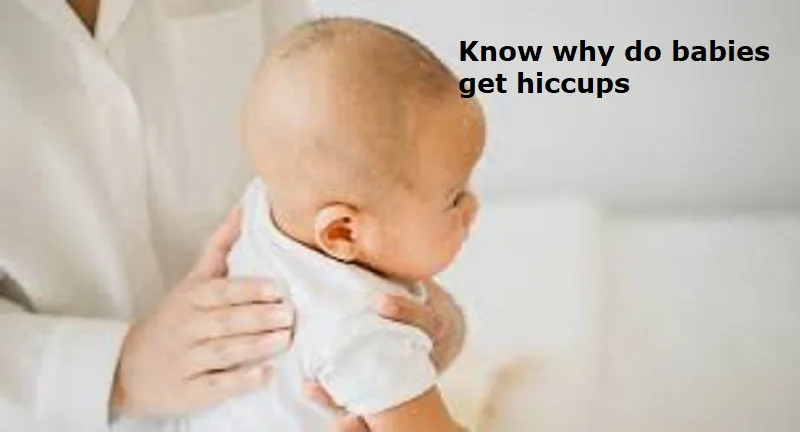
Hiccups are a common occurrence in newborns. They are usually harmless and a normal part of a baby’s development. Hiccups in newborns occur due to involuntary contractions of the diaphragm, followed by the quick closure of vocal cords, creating the characteristic “hic” sound.
According to the American Academy of Paediatrics (AAP), newborn hiccups are generally not a cause for worry and may even help in strengthening the diaphragm.
Newborn hiccups are often triggered by minor physiological factors. These contractions of the diaphragm are typically not a sign of discomfort or illness. Here are the common causes of hiccups in newborn babies.
1. Feeding too quickly
When babies drink milk too fast, they may swallow excess air, which can cause the diaphragm to contract and lead to hiccups. Ensuring a slow and steady feeding pace can help prevent this.
2. Overfeeding
A full stomach can put pressure on the diaphragm, triggering hiccups. Feeding the baby in small portions and avoiding overfeeding may help reduce this issue.
3. Swallowing air
If a baby does not latch properly while breastfeeding or bottle-feeding, they may swallow air, which can lead to hiccups. Ensuring a proper latch and burping the baby after feeding can minimise hiccups.
Also Read: PCOS-friendly dinner ideas to reduce belly fat
4. Temperature changes
Sudden changes in temperature may irritate the baby’s diaphragm, leading to hiccups. Keeping the baby warm and maintaining a comfortable environment can prevent this trigger.
5. Gastroesophageal reflux (GER)
In some cases, hiccups may be caused by gastroesophageal reflux, where stomach contents flow back into the oesophagus, irritating the diaphragm. If hiccups are persistent and accompanied by spitting up or discomfort, consulting a paediatrician is advisable.
Parents can manage them through proper feeding techniques and burping.
1. Ensure proper feeding posture
Holding the baby upright while feeding can help prevent excessive air intake and reduce hiccups.
2. Take breaks during feeding
Pausing occasionally while feeding allows air bubbles to escape, reducing the chances of hiccups.
3. Burp the baby after feeding
Gently patting the baby’s back to burp them after feeding can release trapped air and prevent hiccups.
4. Offer a pacifier
Sucking on a pacifier can relax the diaphragm and may stop hiccups naturally.
5. Keep the baby calm
Avoid overstimulating the baby after feeding, as excessive activity can lead to hiccups.

Post Your Comments